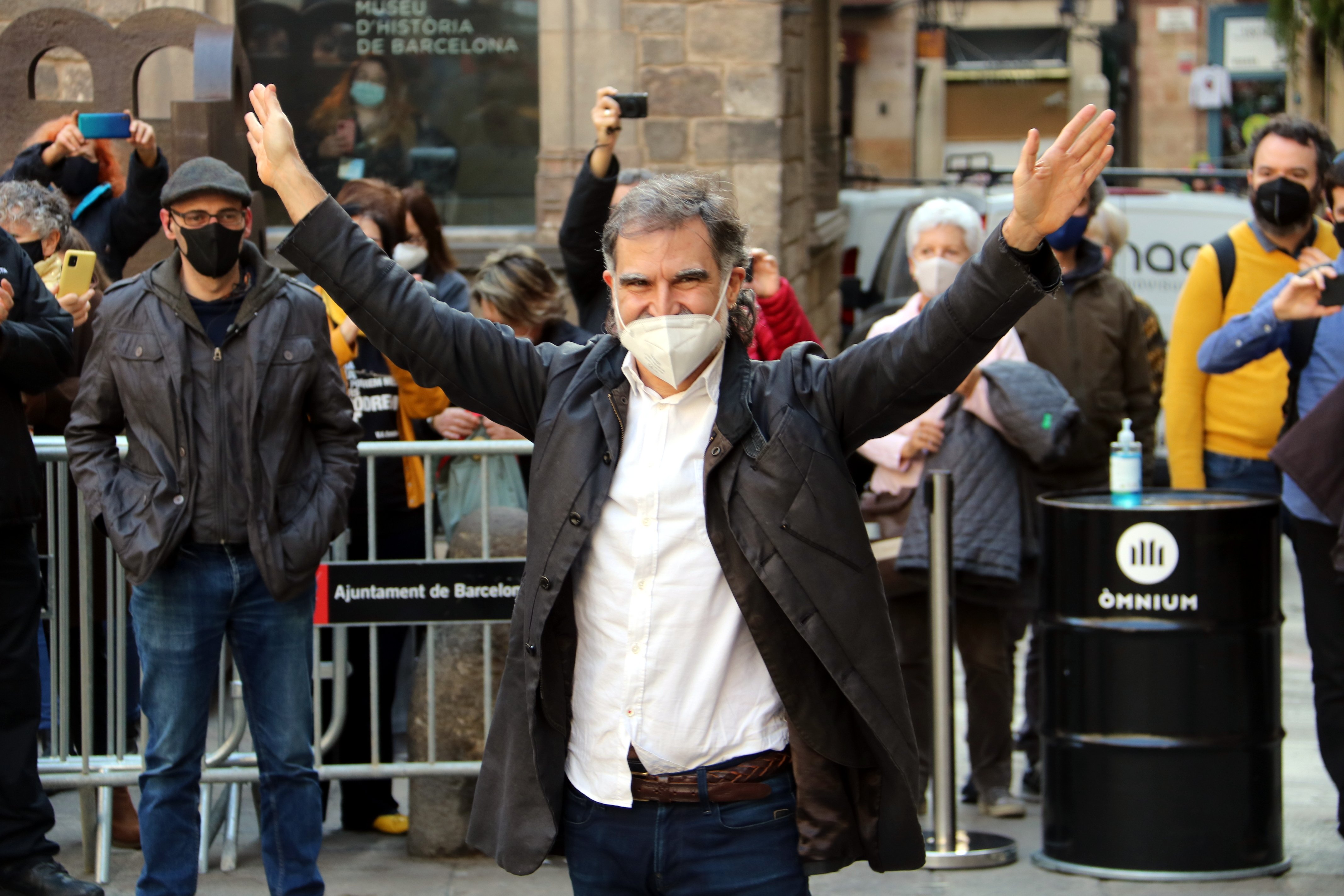The responses have not taken long to arrive. The Spanish Supreme Court today gave the nine Catalan pro-independence prisoners five days to file statements to support the requests for pardons that have been made on their behalf, and which the court is now processing. The president of Òmnium Cultural, Jordi Cuixart was the first to deliver firm words in response.
Cuixart sees the proposal from the Supreme Court as a way to force the pro-independence leaders to make a reflection on their actions which under no circumstances they should have to do: "What did they think? We won't accept any humiliation. Neither repentance, nor pardon. We have said it in the Supreme Court, on the street and around the world: The defence of democracy does not accept blackmail. We'll do it again! Long live free Catalonia!", he wrote on Twitter, adding as a hashtag in Catalan,"#Not in my name".

Tweet from Òmnium Cultural president Jordi Cuixart
For the prisoners, to be seeking a remedy for their situation through the Supreme Court, and to place any real hopes in that, is hard to believe for all of them. It should be remembered that Spanish public prosecutors have reiterated their opposition to the pardons and the prosecutors in the Supreme Court itself go further, and have also opposed the pardons to the three other convicted ministers who did not receive jail sentences, Carles Mundó, Meritxell Borràs and Santi Vila. These three are in addition to the nine imprisoned for sedition and (in some cases) misuse of public funds: Cuixart, as well as Jordi Sànchez, Joaquim Forn, Oriol Junqueras, Carme Forcadell, Dolors Bassa, Josep Rull, Jordi Turull and Raül Romeva.
In a similar line to Cuixart, former Catalan government minister Josep Rull has also recently complained about the hypocrisy of demands that the prisoners show repentance before they are set free. Specifically his tweet was aimed at Socialist politician José Luis Ábalos: "Ábalos, government minister that appointed a Spanish attorney general who insists on asking us to give up our legitimate ideas in order to get out of prison, demands now - in an inflammatory way, in a rally - that human rights are respected. No comment".
The Catalan leader was referring to the words of the minister during the PSOE's campaign for the Community of Madrid elections, where he raised the flag of human rights with regard to Vox's verbal attacks on unaccompanied foreign minors. José Luis Ábalos was adamant that his party would pursue this issue of basic rights: "We will be proactive, we will add our support to the public prosecutors' appeals and if this issue has to end in the Constitutional Court, it will go there. We are talking about fundamental values and rights that form our constitutional system, we are not dealing with a minor issue that can just be wiped away".

Tweet by Josep Rull, on May 2nd, 2021
Nevertheless, the bureaucratic process continues. The criminal chamber of the Supreme Court today opened a five-day period to the parties to present arguments. Once these have been received, the Supreme Court will make its non-binding report on the question, and then the entire case will be passed to the Spanish government, which will make the final decision on whether or not to grant the pardons. Once decided, and in the event that the Spanish government grants pardons to those convicted in the independence leaders' trial, the final procedure is carried out in the Spanish royal palace, the Zarzuela. It is the king who finally signs the pardons at the request of the executive.
The remedy for their situation demanded by the prisoners themselves and the independence movement in general - an amnesty law on all criminal prosecutions of political actions related to Catalan independence - was rejected by the Spanish Congress in March without even begin debated.
Cover photo: Jordi Cuixart, last January in Barcelona

